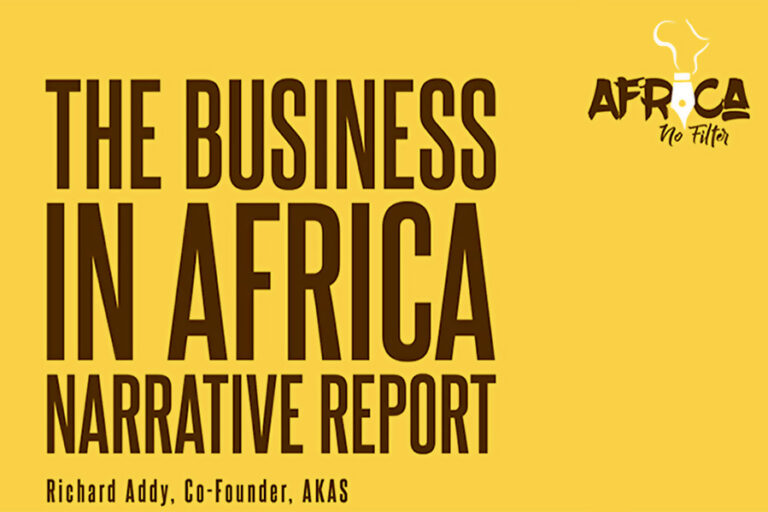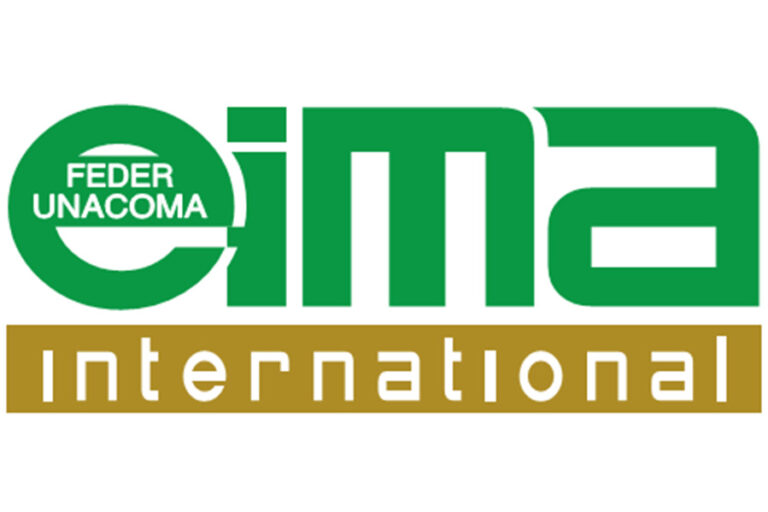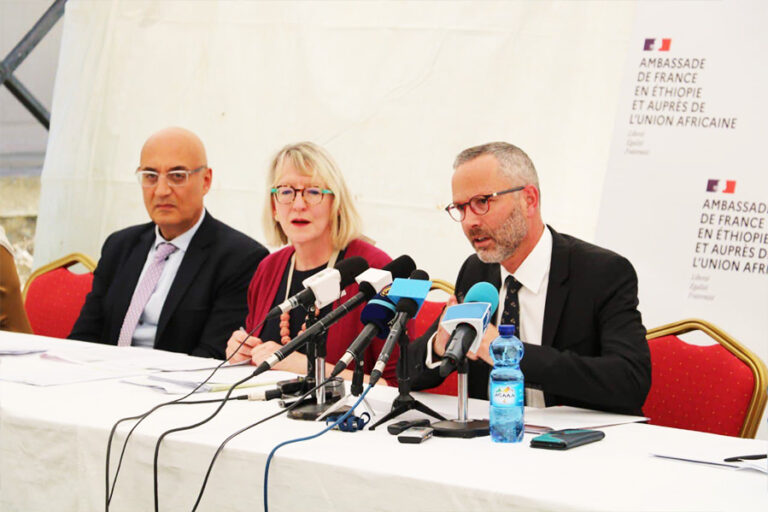Newly launched study shows that there is another scramble for Africa by the international media, but this time it is about who can best profit from the continent’s business opportunities.
And the charge is being led by foreign powers, with 70 percent of coverage about business in Africa referencing China, the USA, Russia, France, and the UK, according to the study ‘The Business in Africa Narrative Report’ that conducted in collaboration between Africa No Filter and AKAS Consulting.
The analysis on the project covers analysis of 750 million stories published between 2017 and 2021 on more than 6,000 African news sites and 183,000 sites outside the continent.
It stated that 70 percent of coverage about business in Africa references foreign powers including China, the USA, Russia, France, and the UK, while corruption referenced in nearly 10 percent of stories on business in Africa and less than one percent of the coverage on business and Africa referenced the African Continental Free Trade Agreement (AfCFTA).
The report shows that the keywords, stories, frames, and narratives associated with business on the continent are dangerously distorted. There is an overemphasis on the role of governments, foreign powers, and larger African states alongside an under appreciation of the role of young people, women, entrepreneurs, creative businesses, smaller successful African states, and Africa’s future potential.
In addition to the dominance of foreign powers in business stories featured in international media, the report highlighted a number of other key frames dominating dangerous distortions played out in stories, and the underrepresentation of businesses across the continent, including more negative coverage, and Africa is Nigeria and South Africa.
International reporting on Africa is also observed on silencing creativity and amplifying technology, and youth and women are underrepresented,
It said that international media are more likely to have a negative tone, “African media are twice as likely to reference corruption in their coverage of business in Africa compared to international media, with corruption featuring in 10 percent of African media stories.”
According to the study nearly 50 percent of articles in global media outlets reference South Africa or Nigeria, crowding out business stars like Mauritius, Namibia, and the Seychelles. Mauritius is the highest-ranking African country in the World Economic Forum’s Global Competitiveness Index.
“Nollywood is the world’s second-largest film industry, and music genres like AfroBeats and AmaPiano are influencing pop culture globally, yet creative businesses were only featured in 1 percent of all business news articles across African and global media. Additionally, while 22 percent of Africa’s working-age population started new ventures between 2011 and 2016, the highest rate of any region globally, African start-ups received declined coverage,” the report adds.
Africa also has the youngest population globally; however, youth and women are underrepresented in business stories. “In fact, online news coverage of young people has declined between 2017 and 2021.”
In addition, stories about African youth globally are often framed through negative stereotypes, invoking images of inactivity, violence, and crime.
It showed that 54 percent of business news in 2021 was framed through government action and policies. Additionally, African media focused more on themes related to government than on those related to entrepreneurship. Yet, African countries make up six of the top 10 countries whose populations were most likely to search for the topic of entrepreneurship in 2021.
“The AfCFTA is the largest free trade area in the world by the number of countries taking part, yet it makes up less than 1 percent of business news and analysis while mentions of foreign direct investment fell from 3.2 percent in 2017 to an even lower 1.9 percent of coverage in 2021,” the report said.
Moky Makura, Executive Director at Africa No Filter, said “we wanted to understand why Africa is seen as a high-risk business destination and why the cost of money is at a premium. The report gives us an insight into why. It shows that business opportunities on the continent are both underrepresented and misrepresented, and now that we know this, we can work on educating the media and changing the narrative around business in Africa.”
Richard Addy, report author and co-founder of award-winning international audience strategy consultancy, AKAS, added “this ground-breaking report offers a detailed data analysis on the narrative around business in Africa. This rigorous research is important because narratives, frames and stories are the lenses through which we perceive and experience Africa. They inform beliefs, behavior and ultimately dictate policy.”
The Business in Africa Narrative Report is the latest research project by narrative-change organization Africa No Filter and forms part of their work to understand and shift harmful and stereotypical narratives about Africa.
Africa No Filter is a not-for profit international organisation that supports the development of nuanced and contemporary stories that shift stereotypical and harmful narratives within and about, Africa. AKAS is an award-winning international audience strategy consultancy.
Another ‘Scramble for Africa’ by foreign powers: Report
EIMA 2022, a global experience
After the success of the 2021 edition, EIMA International is now back on track for the 2022 edition, scheduled in Bologna from November 9 to 13. This year’s edition, the 45th in the history of the international exhibition of agricultural machinery, returns the exhibition to its usual schedule, in November of even-numbered years, marking the restoration of the biennial rhythm that will continue with the 2024 edition. Expectations are high for this event, which was presented at Fieragricola in Verona by FederUnacoma, the association of agricultural machinery manufacturers, the direct organiser of this exhibition that ranks among the world’s top events in terms of number of exhibitors, number of visitors, level of internationality and quality of technologies on show. To date, 835 manufacturers have already formally applied to take part in the event (585 Italian and 250 foreign), with a demand for space that has already reached 80,000 square metres.
“This is a brilliant start,” – explained Simona Rapastella, Director General of FederUnacoma, at the conference – “which leads us to expect a final number of exhibitors and a committed surface area in line with the results recorded in the pre-pandemic EIMA editions.”
“Never like in recent years, conditioned by the health situation and the limitations imposed on public events has the trade fair sector questioned itself on its own future and on the possibility that exhibitors and visitors may have developed new needs and new expectations, and for this reason we have subjected EIMA to capillary monitoring, trying to highlight its strengths and possible critical points,” Rapastella said.
FederUnacoma’s monitoring data, combined with those of specialised companies such as GRS or official bodies such as UFI (International Exhibition Union), confirm a trend towards a reduction in trade fair participation to the benefit of a few events that have a strong international character and act as catalysts for the sector. Field surveys also show a growing expectation for the level of services, especially for operators who see the trade fair as a specific place for business relations. “These are elements that are already peculiar to EIMA International,” noted Rapastella, “which we have tried to strengthen with the confirmation of the extensive ‘business-to-business’ programme for foreign delegations organised in collaboration with ICE, with the incoming programme called ‘Special Guest’ which provides facilities and benefits for foreign business operators, and with a special initiative involving the diplomatic network”.
Tractors: World market at a record pace
After posting strong growth in 2020, the tractor market will see further increases in all major countries in 2021. There are over 900,000 new registrations in India, 318,000 in the USA, and 180,000 in Europe. Italian exports grew by 20%, and national production is estimated at 13.7 billion Euros. The forecasts for 2022 formulated at the beginning of the year are positive, but the Russian-Ukrainian military crisis is changing the scenario, and threatens to heavily influence the global economy.
The global agricultural machinery market continues its positive phase. Tractor sales – which in 2020, at the height of the pandemic crisis, had already recorded a global increase of 7.7% to 2,200,000 units – recorded further increases in 2021 in all the main countries.
The United States closed the year – according to data published by the national manufacturers’ association AEM – with a total of 318,000 tractors registered, up more than 10% compared to 288,000 the previous year, while the Indian market consolidated its supremacy in terms of units sold by exceeding 900,000, an increase of 13%. High levels should have been reached by the Chinese market, for which the final 2021 figures are not yet available but which already recorded a record increase in 2020 (+47% against 470,000 units sold). The European market is also in the black, with an average increase of 16.6%, according to data released by the European Manufacturers’ Committee CEMA, with almost 180 thousand units registered compared to 154 thousand the previous year. France and Germany remained the largest markets in the European landscape, with 36 thousand and 35 thousand units respectively, with increases of 9.2% and 8.8%. Spain accounted for 11,700 units (+9.3%), the United Kingdom for 14,000 (+18%), while Poland stood out, recording an increase of almost 43%, with 20,200 machines registered, driven by the financing of the agricultural development plans operating in the country. Among the emerging markets, Turkey, recovering after the economic crisis of the last few years, registered 64 thousand units, up 33% compared to the previous year. Italy closed the year with an increase in tractors well above the European average of 36.6% or 24,400 units.
Agricultural machinery: high demand, production at risk
During 2022, the Italian agricultural machinery market should maintain good levels, also due to the presence of incentives and financing. On the industrial front, however, the cost of raw materials and energy is likely to curb production and substantially increase machinery prices.
Demand for agricultural machinery in Italy is expected to remain high in 2022, but the cost of industrial materials is threatening the production capacity of manufacturers. The scenario was described this afternoon in Verona, at the press conference of FederUnacoma, the association of manufacturers belonging to Confindustria.
“The agricultural machinery and equipment market can take advantage of multiple and cumulative public incentives,” said FederUnacoma president Alessandro Malavolti at the conference “and this should encourage investment by leading companies. In the same year, tax credits for 4.0, funding for RDPs, the Sabatini Law, the ISI-Inail call for tenders and the NRRP will be available. The 4.0 will be financed for 2022 according to the same parameters as last year,” explained Malavolti.
Green machinery: 14% market growth in 2021
All the main product types closed with a profit. Significant increases were recorded for trimmers (+21.6%), chainsaws (+15.1%) and lawn mowers (+12.9%). Sprayers, which are also used for sanitisation during the most critical moments of the pandemic emergency, went against the trend, down 33.8%. A total of 1,660,148 units were sold in 2021, including self-propelled machines, powered equipment and hand tools.
Despite a slight downturn in the last three months of the year (-4.9%), the market for gardening and landscaping machinery and equipment ended 2021 with a significant increase in sales compared to the previous year.
Figures compiled by the Italian association of Comagarden manufacturers (FederUnacoma) and the Morgan statistics group indicate a total of 1,660,148 units sold by the end of the year (from self-propelled machines to powered equipment and hand tools). In percentage terms, this sales volume marks an increase of no less than 14 percentage points over 2020. All the main types of products surveyed by the Morgan Group are showing a positive trend, starting with trimmers, which are up 21.6%, with over 105,000 units sold. Double-digit increases were also recorded for chainsaws (+15.1% to 430 thousand units) and lawn mowers (+12.9% to approximately 325 thousand units), while smaller increases were recorded for brushcutters (+6.1% to 304 thousand units).
125th bilateral relations
The French Embassy kicked off an event that will be celebrated the entire year in celebration of the 125th Ethio-France’s long-standing diplomatic relationship.
For more than a century the two countries have shared bilateral ties that were formally cemented 125 years ago when Leonce Lagard, then French governor of Somaliland and later Duke of Entoto, signed a treaty with Emperor Menelik II recognising diplomatic relations between the two countries.
In commemoration of this relationship, on March 10th the French Embassy in Ethiopia officially kicked off celebrations at a press briefing held by the French Ambassador to Ethiopia, Rémi Maréchaux, and other French government, development organisations, and military officials.
At the ceremony, the Ambassador noted that France’s relationship with Ethiopia is unique in the African continent, as it is the longest and untarnished. He affirmed his administration’s commitment to ensuring that this relationship continues and blooms even further. As such, the celebrations are being held under the general ideation of relevance over dominance; given the recent tensions that Ethiopia has had with the international community regarding sovereignty, these are welcome words for those on the side of diplomacy.
The celebrations are going to be held for a year, with every month focusing on different aspects of the historic relations between the two countries. Everything from Airbus supplying Ethiopian Airlines’ first plane, to instances of French words and linguistic elements becoming adopted in the Ethiopian social lexicon, to the relationship between Former President Charles De Gaulle and the late Emperor Haile Selassie, and much more, the year is going to be dominated by seminars, showcases, discussions, and more.
Aside from the sentimental value of these celebrations, however, the French government hope to further strengthen ties between the two countries both at present and in the future. As such, there will also be a focus on highlighting the work being done in various socio-economic sectors such as the preservation and restoration of the Lalibela Rock-Hewn Churches and the National Palace. Recognising that education plays an important role in the development of a country, the Alliance Ethio-Francaise, the cultural institute for French diplomacy, and the Lycee Gebremariam school will be taking various initiatives focused on creating tapping into the vast skill and potential of Ethiopian youth.
African nations reiterate commitment to accelerate the achievement of SDGs
The Eight Regional Forum on Sustainable Development (ARFSD 2022) ended on 05 March 2022, with the adoption of the Kigali Declaration on good practices and solutions to enhance implementation of the sustainable development goals in Africa.
Adopted by all 54 member states in attendance, the Kigali Declaration urges African countries to link mutually reinforcing policies for sustainable development and COVID-19 recovery to ensure inclusive emergence from the pandemic.
The document calls on African countries to leverage new tools, innovative solutions, and technology, including through enhanced partnerships with the private sector, academia, non-governmental, civil-society, and other stakeholders to build strong, agile, sustainable, and resilient national statistical systems.
It also highlighted the need for countries to leverage the potential of the African Continental Free Trade Area Agreement (AfCFTA) to support the development of regional value chains, citing the case of minerals used in the production of batteries and electric vehicles as an example.





